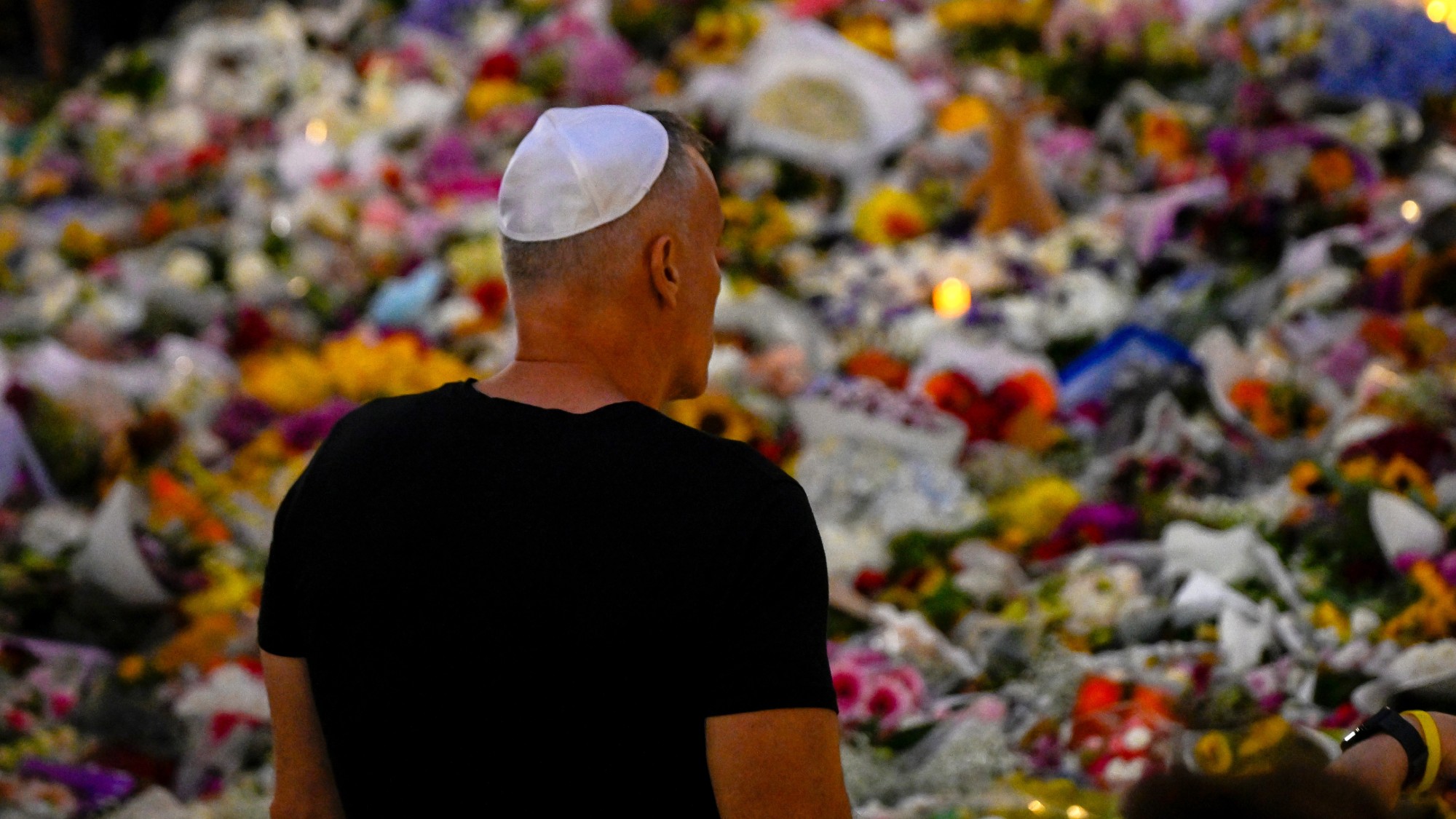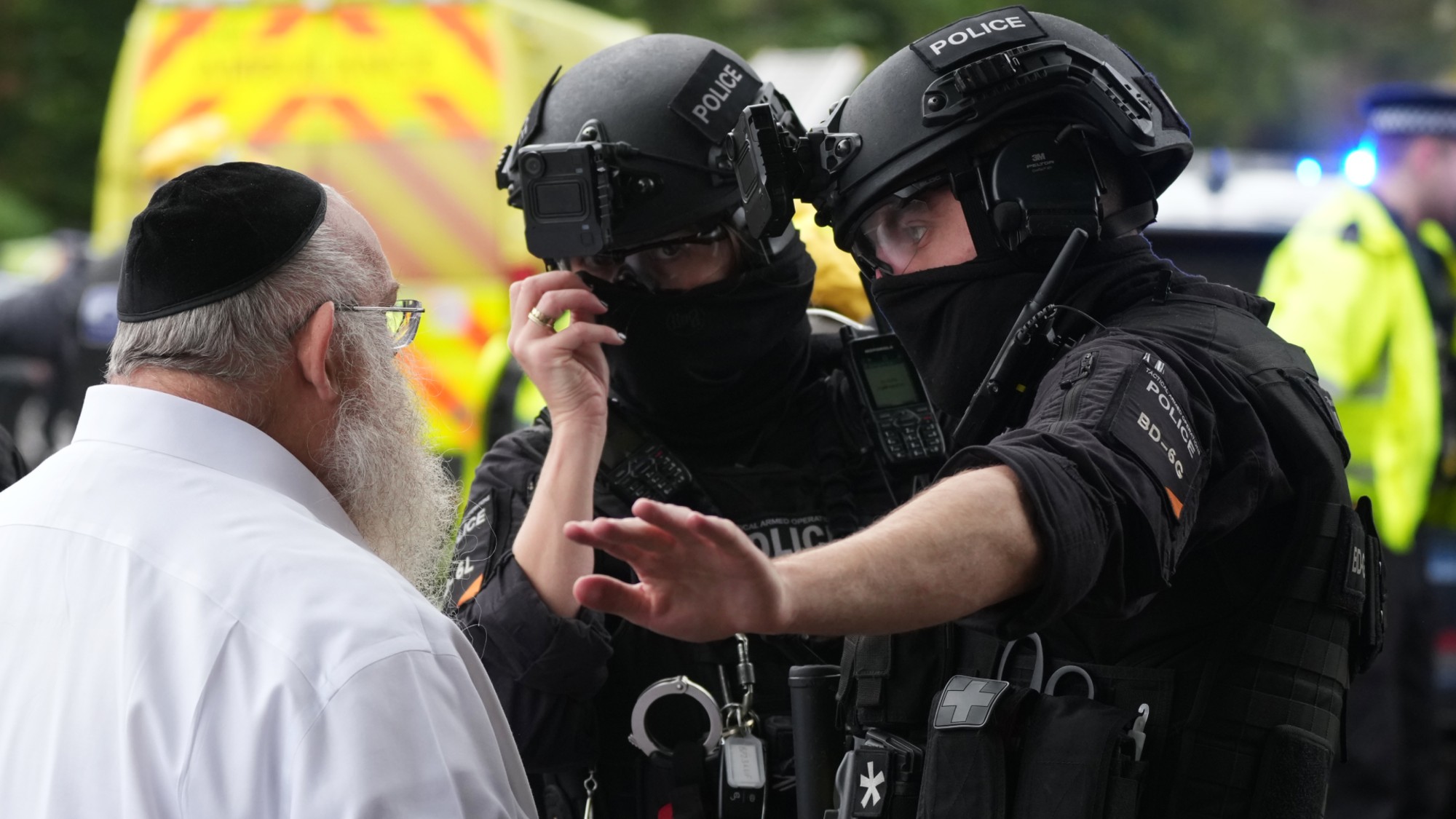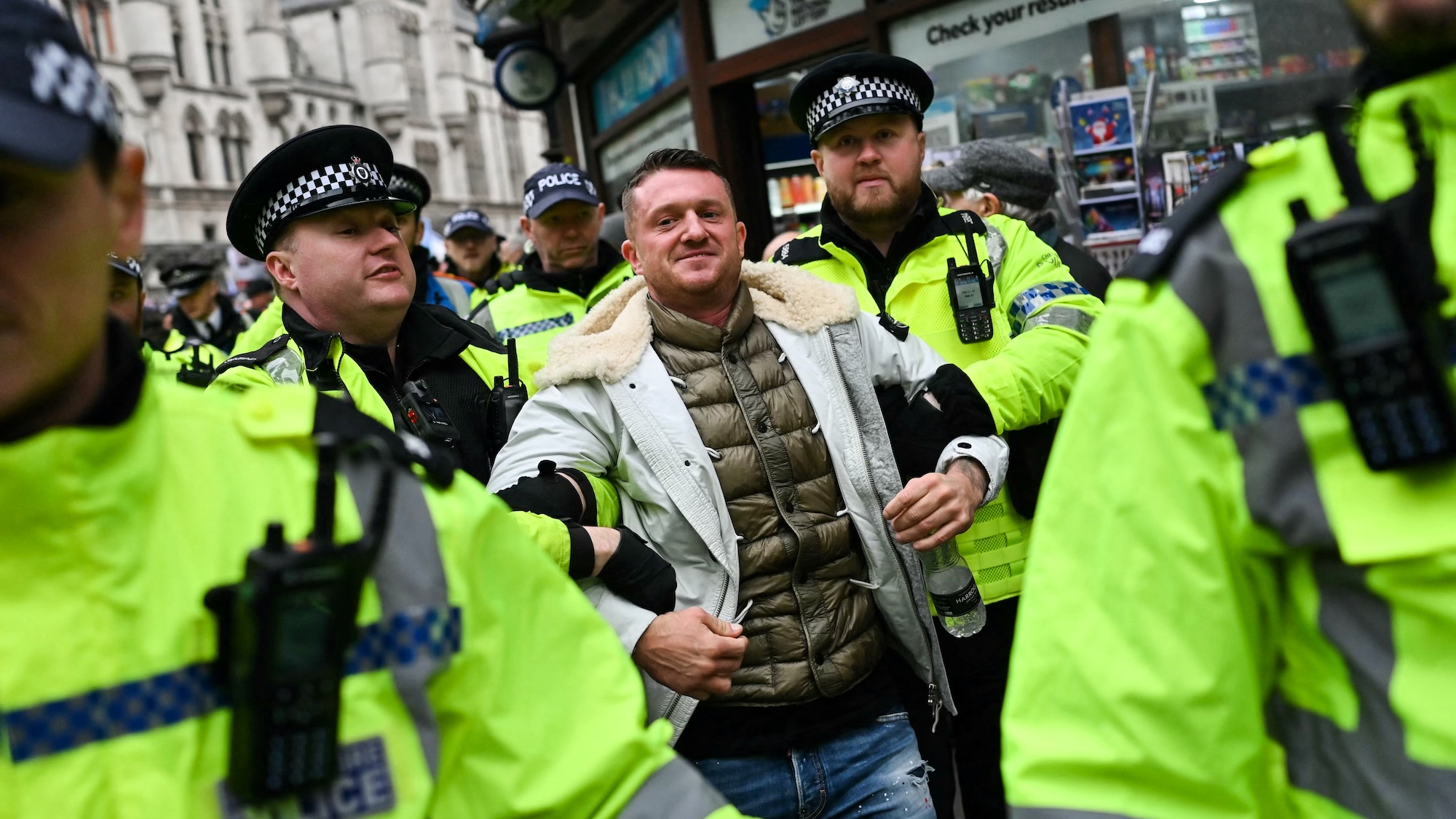Why does the far-right pose such a threat in Europe?
Deadly gun attack in Germany described as a ‘wake-up call’ for continent

A free daily email with the biggest news stories of the day – and the best features from TheWeek.com
You are now subscribed
Your newsletter sign-up was successful
A deadly gun attack on two shisha bars in the German city of Hanau has stoked fears over far-right extremism in Europe.
Police in Germany have found that 43-year-old German citizen Tobias Rathjen, who shot dead 10 people before killing himself on Wednesday, was the founder and operator of a far-right website.
On this site, he attacked ethnic minorities in posts that Germany’s Federal Prosecutor Peter Frank said showed a “deeply racist mindset”.
The Week
Escape your echo chamber. Get the facts behind the news, plus analysis from multiple perspectives.

Sign up for The Week's Free Newsletters
From our morning news briefing to a weekly Good News Newsletter, get the best of The Week delivered directly to your inbox.
From our morning news briefing to a weekly Good News Newsletter, get the best of The Week delivered directly to your inbox.
The Guardian describes the shootings as a “wake-up call”, adding that people should be “sobered by the realisation that the hatred and resentment that animated Tobias (Rathjen) are spreading fast”.
In 2018, far-right terrorist attacks accounted for 17.2% of terrorist incidents in the Western world, Euractiv reports. The total number of extreme-right incidents has risen 320% in the past five years, the site adds.
Attacks by Islamist groups account for 6.8% of attacks, and attacks not attributed to any group accounted for 62.8% of incidents.
What is behind the rise in Europe?
A free daily email with the biggest news stories of the day – and the best features from TheWeek.com
The rise of the far-right in the European mainstream is a relatively new phenomenon, having laid low for many decades following the end of the Second World War.
Human Rights Watch (HRW) says that a number of mainstream parties have “embraced nativist, populism-inspired anti-rights policies and rhetoric” in recent years, mainly focusing on issues such as “welfare and migration”.
HRW adds that many of these parties also share an innate “disdain for courts, critical media, vibrant civil society and other independent checks on executive power”.
The rise of the far-right in Europe began twenty years ago in Austria, The New York Times says, when in February 2000 the controversial far-right Freedom Party of Austria entered government.
“It was certainly a shock,” the newspaper says. “After the war, European electorates had grown comfortable choosing alternate governments of the center left and center right during the second half of the 20th century.”
EU leaders “believed the Austrian experience to be an aberration” - an assumption which turned out not to be the case.
Neighbouring Germany has seen a considerable increase in the prevalence of right-wing rhetoric, galvanised in particular by the period since the migration crisis of 2015.
German police said last week they were “monitoring 53 potentially violent individuals associated with the extreme right, up from 22 in 2016”, The Guardian reports.
Domestic intelligence and security agencies are under “intense pressure because of the growing number of plots and incidents”, the papers says.
Far-right political parties have also experienced surges in popularity in Italy (Lega), Spain (Vox), Hungary (Jobbik) and Poland (PiS).
What about the UK?
In the UK, anti-immigrant rhetoric and reports of racially aggravated violence have surged since the 2016 Brexit referendum.
The Global Terrorism Index (GTI) of 2019, published in November, revealed that the UK is the country worst affected by terrorism in the EU. The GTI ranked Britain in the top 30 of the world’s 168 nations, ahead of France, Germany, Belgium and Spain, as well as Sri Lanka, Iran, Russia and Israel.
Researchers pointed towards the rising threat from the new IRA movement as a key contributor to the UK’s high position in the ranking, although it also warns of a significant rise in right-wing terrorism.
Officials say the number of suspected far-right extremists had been rising since 2015, amid increasing awareness of the threat posed by groups like banned neo-Nazi group National Action and publicity around the likes of Tommy Robinson and the English Defence League.
Experts also believe the increase in referrals could be down to increased sharing and posting of far-right material online.
There is growing concern this could disproportionately affect teenagers. Last month it emerged that under-18s were the only age group to see a rise in terror-related arrests compared with last year, figures that “will raise new concerns about extremism among the young fuelled by social media”, says the Daily Telegraph.
“The number of young people getting involved with terrorism surged with Isis who were particularly effective at using social media to radicalise them,” Richard Walton, a former head of counter terrorism with the Met Police told the paper.
"We are also seeing an increase in right-wing extremism in part fuelled by Islamist terrorist attacks in London and Manchester in 2017,” he said.
Is there a connection between Brexit and far-right extremism?
While recent far-right terrorist attacks have caused police and security forces to rethink their monitoring and de-radicalisation strategies, The Independent says “awareness has been growing over the link between Islamist and far-right extremism”, with the head of UK counterterror policing recently warning MPs that both ideologies were “feeding each other”.
Metropolitan Police Commissioner Neil Basu said: “The overriding threat to the UK remains from those inspired by Isis and the resurgent al-Qaeda, but our operations reflect a much broader range of dangerous ideologies, including very disturbingly rising extreme right-wing activity.”
In a bid to tackle the growing raise in violent far-right extremism, the Home Office has been recruiting more far-right “intervention providers” for Prevent to cope with the increased workload, including former neo-Nazis who can use their experience to help people earlier in the radicalisation process turn away.
-
 How to Get to Heaven from Belfast: a ‘highly entertaining ride’
How to Get to Heaven from Belfast: a ‘highly entertaining ride’The Week Recommends Mystery-comedy from the creator of Derry Girls should be ‘your new binge-watch’
-
 The 8 best TV shows of the 1960s
The 8 best TV shows of the 1960sThe standout shows of this decade take viewers from outer space to the Wild West
-
 Microdramas are booming
Microdramas are boomingUnder the radar Scroll to watch a whole movie
-
 How the ‘British FBI’ will work
How the ‘British FBI’ will workThe Explainer New National Police Service to focus on fighting terrorism, fraud and organised crime, freeing up local forces to tackle everyday offences
-
 How the Bondi massacre unfolded
How the Bondi massacre unfoldedIn Depth Deadly terrorist attack during Hanukkah celebration in Sydney prompts review of Australia’s gun control laws and reckoning over global rise in antisemitism
-
 Who is fuelling the flames of antisemitism in Australia?
Who is fuelling the flames of antisemitism in Australia?Today’s Big Question Deadly Bondi Beach attack the result of ‘permissive environment’ where warning signs were ‘too often left unchecked’
-
 Ten years after Bataclan: how has France changed?
Ten years after Bataclan: how has France changed?Today's Big Question ‘Act of war’ by Islamist terrorists was a ‘shockingly direct challenge’ to Western morality
-
 Arsonist who attacked Shapiro gets 25-50 years
Arsonist who attacked Shapiro gets 25-50 yearsSpeed Read Cody Balmer broke into the Pennsylvania governor’s mansion and tried to burn it down
-
 Manchester synagogue attack: what do we know?
Manchester synagogue attack: what do we know?Today’s Big Question Two dead after car and stabbing attack on holiest day in Jewish year
-
 Tommy Robinson: a timeline of legal troubles
Tommy Robinson: a timeline of legal troublesThe Explainer Far-right leader has relied on donations from supporters to fight numerous court cases dating back 20 years
-
 The Miami Showband massacre, 50 years on
The Miami Showband massacre, 50 years onThe Explainer Unanswered questions remain over Troubles terror attack that killed three members of one of Ireland's most popular music acts